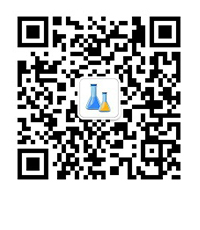Search Product
Structure Search
Search
Advantage Products
Location: Industrial Info
Can diabetes really be reversed? Summary of stem cell therapy
2017-08-16
来源:转载自第三方
16 August 2017
Diabetes is a metabolic disease characterized by chronic hyperglycemia caused by a variety of causes. It is one of the most serious public health problems around the world in the 21st century. There is no cure for patients, long-term oral hypoglycemic agents or injection of insulin with blood glucose monitoring is a necessary treatment. In order to reduce the burden and suffering of patients, scientists have been seeking to reverse diabetes, stem cell therapy has become a hot topic, this article will summarize the researches in recent years.
Stem cell re-education therapy
In 2012, a new method was published in BMC Medicine, they used umbilical cord blood stem cells to re-educate the T cells in diabetic patients, thereby initiating pancreatic function and reducing the need for insulin. Stem cell re-education treatment increases the percentage of blood-regulated T lymphocytes in the patients, and other immune function markers have improved. This is an improvement in autoimmune control that is mediated by autoimmune regulatory AIRE in umbilical cord blood stem cells to restore islet β cells.
Other researchers have used this approach to develop insulin by-product C-peptide protein, which has been found to have a good blood glucose control level in patients with type 1 and type 2 diabetes during the four years of follow-up.
Cell: Stem cell culture
In October 2014, the Douglas Melton team at Harvard University published a study in Cell that they succeeded in finding a way to convert human stem cells into β cells that could produce and release insulin. The stem cells were cultured in flasks by adding growth media and other molecules. And finally it can produce 200 million β cells in a 500mL flask. Researchers planned to further test their new materials in non-human primates and eventually perform clinical trials in diabetic patients.
PLOS ONE: Generate "new organ"
In a study published in "PLOS ONE" in January 2015, researchers at the University of Iowa used human stem cells to prepare human insulin-secreting cells that responded to glucose and got blood glucose levels to normal in diabetic mice. In mouse studies, insulin-secreting cells were placed underneath the kidney capsules, where they developed into an organ-like structure that not only had their own blood supply but also secrete insulin and gradually corrected the level of blood vessels in diabetic mice within a few months. Moreover, the blood glucose levels have remained stable after it returned to normal.
Stem Cell Reports: Stem Cell Transplantation and Hypoglycemic Drugs
In March 2015, scientists from Canada published their findings in the international journal Stem Cell Reports: Combining human stem cell transplantation and hypoglycemic agents can be very effective in improving body weight and glucose metabolism in type 2 diabetic mouse models. Researchers transplanted pancreatic progenitor cells from human embryonic stem cells to diabetic mice, which developed into insulin-secreting beta cells, improving insulin sensitivity and glucose metabolism. In addition, the combination of stem cell transplantation with existing hypoglycemic agents can allow mice to lose weight rapidly, which significantly improves glucose metabolism compared to monotherapy.
Stem Cell: Intravenous injection of stem cells
A study in Stem Cell in April 2015, the team designed HCELL homing molecules to direct intravenous stem cells into inflamed islets, allowing more stem cells to be filled into islets to avoid immune destruction of islet cell, resulting in a more complete reversal of diabetes. The results showed that blood glucose levels continued to be normal after administration of HCELL-loaded stem cells to diabetic mice.
Diabetes is difficult to cure. Stem cell transplantation is only an exploratory treatment, and researchers hope that stem cell therapy will reduce insulin resistance in type 2 diabetes and help insulin production in type 1 diabetes. It is too early to talk about radical cure for diabetes now, but we hope that it will provide a new way for the patients with diabetes.
Related links: ACP: Metformin Still Best As First Type II Diabetes Treatment
The Mechanism and Common Drugs of DPP-4 Inhibitors
The Mechanism and Common Drugs of DPP-4 Inhibitors
Edited by Suzhou Yacoo Science Co., Ltd.
如果涉及转载授权,请联系我们。












